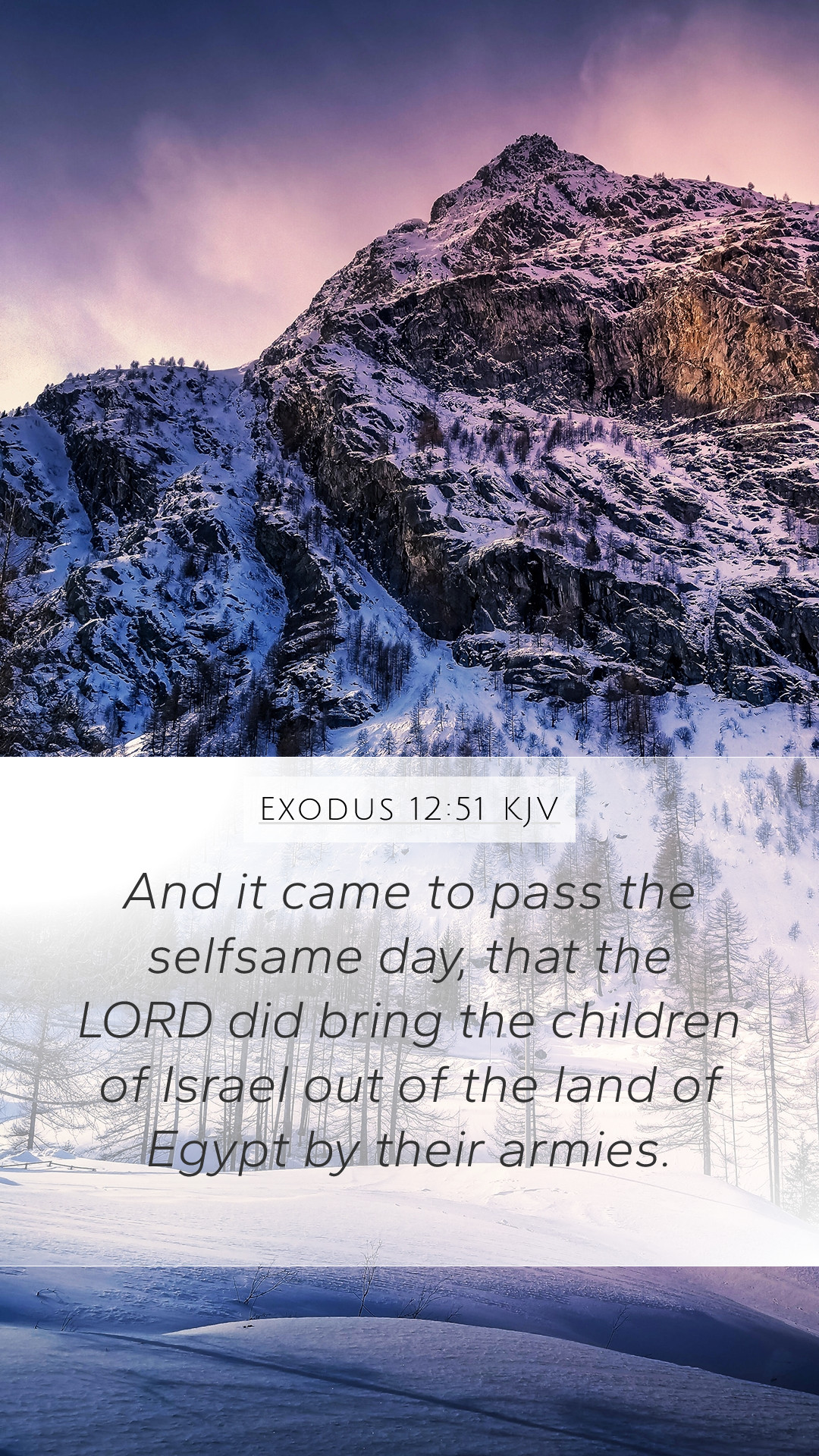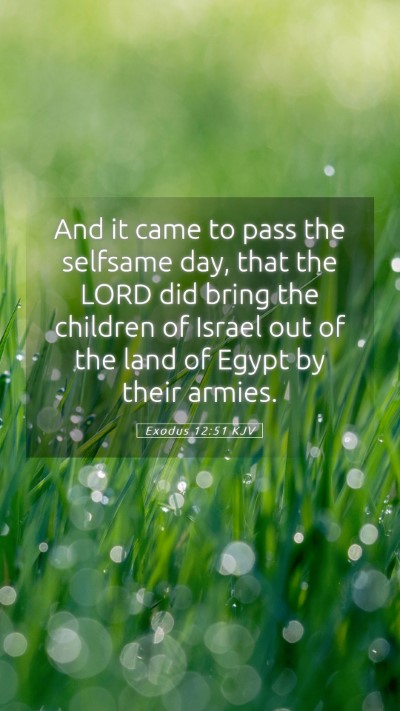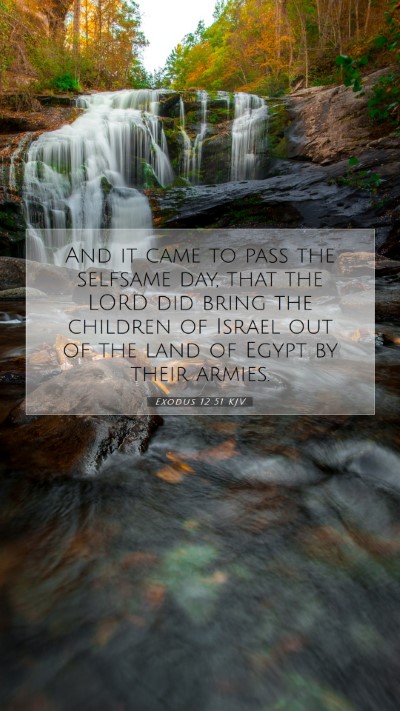Understanding Exodus 12:51
Exodus 12:51 states, "And it came to pass the selfsame day, that the LORD did bring the children of Israel out of the land of Egypt by their armies." This verse marks a significant moment in biblical history - the Exodus, where God fulfills His promise to free the Israelites from bondage in Egypt.
Contextual Overview
This event occurs after the ten plagues have devastated Egypt, leading to Pharaoh's reluctant decision to let the Israelites go. Exodus 12:51 illustrates the decisive moment when God’s plan for liberation is realized. The use of the phrase "selfsame day" emphasizes the immediacy and certainty of God's actions.
Bible Verse Commentary
According to Matthew Henry, this verse signifies the completion of divine intervention. The manifestation of God's power is evident as He delivers His people, confirming His covenant promises. It highlights God's faithfulness and emphasizes that liberation was not merely physical but also spiritual, as they were to serve Him.
Albert Barnes notes that this verse encapsulates the entire deliverance process, marking a shift from slavery to freedom. It sets a precedent for God’s continual acts of redemption throughout scripture, illustrating His sovereignty and authority over nations.
Adam Clarke refers to the organized manner of their exodus. He points out that it was not a chaotic escape but rather conducted "by their armies," which indicates that God not only rescued but also led them as a unified people, prepared for the journey ahead. The fulfillment of divine promises is underscored as the Israelites embark on their journey to the Promised Land.
Key Themes and Insights
- Divine Intervention: God's active role in the deliverance of His people is emphasized throughout this event, ensuring that His word came to pass.
- Faithfulness: The moment serves as a reminder of God's faithfulness to His promises and His commitment to His covenant with Israel.
- Historical Significance: The Exodus becomes a foundational narrative for the Jewish faith, symbolizing freedom and God's power to save.
- Covenantal Relationship: This event indicates the beginning of a new relationship where Israel is set apart as God's people, tasked with obedience to His commandments.
Application and Reflection
For modern readers, Exodus 12:51 encourages reflection on God’s faithfulness in the midst of trials. Like the Israelites, individuals are often called to step out of their 'Egypts' – situations of bondage or sin. The verse can inspire **Bible study groups** and **online Bible studies** to explore themes of liberation, obedience, and the assurance of God’s presence in their lives.
Applying the lessons from this scripture can help Christians understand that, although the path may be fraught with challenges, God is faithful to lead and protect His people. The exodus from physical slavery to spiritual freedom can serve as a compelling metaphor for personal transformation and renewal.
Cross References
- Exodus 3:8: God promises to deliver Israel from Egypt.
- Exodus 14:30: The crossing of the Red Sea, marking complete deliverance.
- Deuteronomy 6:12: A reminder not to forget the deliverance God provided.
Conclusion
Exodus 12:51 serves as a profound declaration of God's ability to save, and His unwavering commitment to His people. Through this verse, believers are reminded of the importance of faith, obedience, and recognizing God’s hand in their life journeys. This passage provides ample opportunity for Bible study insights and serves as a cornerstone for understanding the transformative power of faith.
Further Study Tools
For those diving deeper into Scripture, utilizing Bible study tools such as commentaries, concordances, and maps can enrich one’s understanding of biblical narratives and enhance personal study plans.
Engaging with various resources helps elucidate the meanings of Bible verses, aiding believers in grasping the full context and implications of their faith journeys. The study of this specific verse can spark discussions about **Bible study lessons** and how they apply to our lives today.


